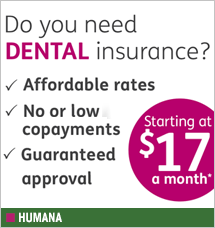Dollar Sense
Could Eliminating Drug Copays Improve Health and Lower National Healthcare Costs?

The cost of health care is a hot potato that won’t go away anytime soon, even with Obamacare looming in 2014. There is no easy answer. We could all use some good news, and maybe… just maybe there is some. As the cost of health insurance continues to rise, employers often look for ways to spread out their own cost. That may mean raising the employee share of expense, such as a higher copay for prescription drugs. But some in the healthcare industry wonder if that backfires, causing overall healthcare costs to rise and forcing us all to pay more in the long run. To investigate that question, they took a closer look.
What the Study Hoped to Prove
A couple of years ago one medical research group (study specifics shown below) studied diabetes patients and their behavior regarding prescription drugs. They focused on diabetes because it is so widespread in the United States.
One out of every ten dollars spent on health care in this country is directly attributed to diabetes. Diabetes also leads to medical-related absences from work or reduced productivity by those who show up for work even though they are sick with diabetes-related illnesses.
Many diabetic patients had reported that because of the cost, they did not always take their diabetic medicines as prescribed. But historical evidence shows that not taking diabetes-related medicines as prescribed can lead to “adverse clinical outcomes, and increased overall costs in diabetes and other chronic conditions.” The goal of the study was to see if eliminating the copay for these medicines would encourage patients not to skimp in order to save money. And if they did follow their doctors’ directions more carefully in regard to medication usage, would they experience better health overall and need less clinical treatment and services? The researchers surmised that eliminating patient copays could result in overall reductions of health care costs.
How the Study Worked
For the one-year duration of the study, participants received their diabetic medications and supplies without copay, up to an annual maximum of $7,500. No other medications or services were changed in the study, so that the effect of no-copay could be isolated. And no care management associated with the diabetes changed, only the copay.
Four questions were asked of participants:
- Did you decide not to fill or refill a diabetes medication because it was too expensive?
- Did you skip doses of diabetes medication to make the medicine last longer?
- Did you take smaller doses of a diabetes medicine to make it last longer?
- Did you spend less money on food, heat, or other basic needs in order to afford diabetic medicine?
Participants were also asked to rate their health status (from poor to excellent).
At the conclusion of the study patients who were not taking their medicines correctly in order to save money dropped from 41% to 17%. Eighty-nine percent of the participants said that having no copay caused them to take better care of their diabetes, and about the same number said they were taking better care of their general health because of the program.
Here are some of the other findings:
- 79% agreed that the program helped them stick to their medications as prescribed more regularly.
- 53% said the program helped them take additional diabetes medication.
- 61% said the program caused them to adhere better to their medications for other conditions.
- 83% said the program helped them check their blood sugar more regularly.
The sponsors of the study admit that their research had limitations, and that the impact on overall health was unclear. But the results offer a new perspective that removing the cost barrier in the form of copays is beneficial to participants in general because it led to improved behavior. The study’s authors concluded by suggesting employers should consider increasing employee wellness by making prescription medications more affordable.
This particular study didn’t address the issue of Medicare patients. But if Congress wants to save money on Medicare spending it seems wise to consider whether forcing Medicare recipients to pay out of pocket for costly drugs is costing more in the long run, by leading to other forms of more expensive treatment.
(The study was performed by Christiana Care Health Systems, the largest health care provider in Delaware. The 12-month study ran from April 2009 through March 2010. The 188 participants who completed the full study were verified to be diabetic patients. Before beginning the study they were given extensive lab work. At the end of the 12 months, they were examined again.)
Teresa Ambord is a former accountant and Enrolled Agent with the IRS. Now she writes full time from her home, mostly for business, and about family when the inspiration strikes.



























































